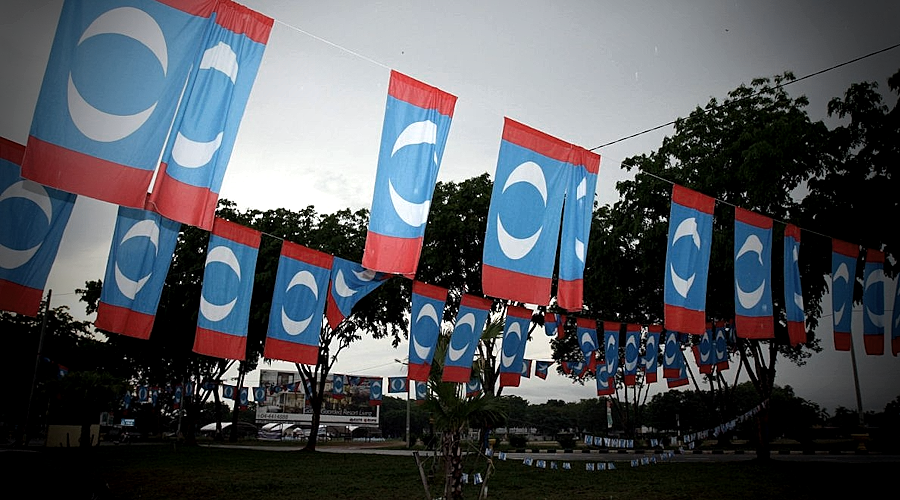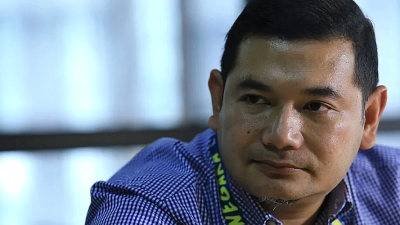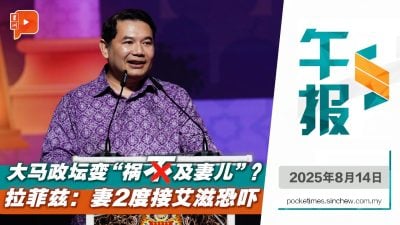
As the Parti Keadilan Rakyat (PKR) national congress and party elections are around the corner, the battle for deputy president is heating up, sparking concerns about internal unity.
Many worry that this dramatic and intense contest might escalate into a crisis of division.
In PKR secretary-general Fuziah Salleh’s view, the battle for deputy presidency has always been the most fiercely contested part of PKR elections.
From Datuk Seri Rafizi Ramli facing off against Datuk Seri Mohamed Azmin Ali, then Rafizi versus Datuk Seri Saifuddin Nasution Ismail, and now Rafizi going up against Nurul Izzah Anwar—always a highlight in almost every election.
Therefore, despite the outward intensity of the race this time, it is nothing new to Fuziah, who firmly believes that PKR will return to rationality, eventually reconciling and moving forward, as always.
For PKR members who went through street protests, endured repression, tear gas dispersals, and even imprisonment, this kind of “heated election” is nothing out of the ordinary.
As a reformist party, PKR has always been characterized by intense debates and open competition.
However, Fuziah candidly admits that in social media and party group chats, some members express intense emotions, creating a “do-or-die” atmosphere.
Factional support within the party is also becoming increasingly clear, with everyone openly backing their chosen candidates.
To prevent candidates from campaigning in groups or publishing promotional images implying “team voting,” the PKR election committee has implemented clear campaign rules, explicitly banning negative attacks and factional-style campaigning.
As a result, Rafizi, who initially promoted the “HIRUK” roadshow (Reviving the ideology of reformation in the test of power) using team-style posters, received a warning from the PKR election committee.
Rafizi has long been seen as an “atypical” figure in Malaysian politics—he is not only a key architect of the policies introduced by the Madani government but also an icon of data-driven and performance-based reform.
However, he now finds himself in a kind of “lone warrior” position within his own party.
Reform cannot rely solely on the explosive force of a “kamikaze” approach—it also requires systems, culture, pace, and companions. Rafizi can certainly stay true to himself, but if in the end no one is willing to “walk with him,” it becomes a lone battle.
Recently, during one of his roadshows, Rafizi admitted that his criticism of party affairs in public during the campaigning period was akin to a kamikaze mission—an act of “self-destruction” in politics.
To him, PKR’s journey from the streets to Putrajaya was built on the spirit of “speak the truth, no fear of prison, and no latch on to power.”
He criticized some senior party leaders for becoming increasingly timid after gaining power—reluctant to take risks and even cautious in speaking out.
Many admire Rafizi for speaking the truth without political jargon and his logical thinking. However, these same traits often make him appear less “tactful” when it comes to political networking, factional coordination, and media maneuvering.
As the party mainstream moves toward factional negotiations and resource redistribution, Rafizi maintains a detached stance.
Now, as the party election approaches, he has even chosen to skip the opening ceremonies of the youth and women’s wings, expressing his position through a rather cold approach in politics.
Perhaps Rafizi sees this as a matter of principle. But in politics, those who are absent, refuse to cooperate, or insist too strongly on their own pace are easily labeled as “outsiders.”
Reform cannot rely solely on the explosive force of a “kamikaze” approach—it also requires systems, culture, pace, and companions.
Rafizi can certainly stay true to himself, but if in the end no one is willing to “walk with him,” it becomes a lone battle.
For divisions fractured by the election results, Fuziah has already started the process of reconciliation, working to persuade district leaders who had quit or resigned—such as those from Lenggong and Masjid Tanah—to return.
At the same time, Nik Nazmi Nik Ahmad, aligned with Rafizi’s camp, has acknowledged his shortcomings and accepted his defeat in the race for the Setiawangsa division chief.
Fuziah, without naming names, remarked: “Only one person is still making noise.”
She implied that everyone else is willing to return to collective pace—except one, who remains out of sync.
Still, she firmly believes that elections are an opportunity for reform, not a source of division. What matters more after a fierce contest is the restoration of trust and the rebuilding of consensus.
At a recent event, Johor Menteri Besar Datuk Onn Hafiz Ghazi said in front of Rafizi that although he wanted to make a joke about the PKR party elections, he decided to hold his tongue after being warned beforehand: “Don’t even touch that topic!”
Laughing, he said, “After all, I’m from Umno, and our own party already has enough drama,” sparking laughter from the crowd.
Every political party has its share of “drama,” and PKR is no exception.
The key question is whether this “script” is just a performance for the public—or an internal journey to progress.
The answer will soon be revealed.
ADVERTISEMENT
ADVERTISEMENT








































